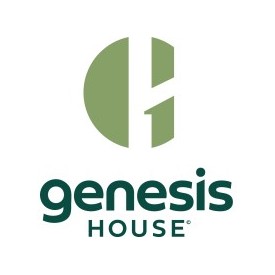Cost is one of the most significant barriers to entry for addiction treatment. When someone is seeking high-quality care for substance use disorder (SUD), the expected costs can seem more overwhelming than the addiction itself. That’s especially true if ongoing SUD has caused financial difficulties or loss of work.
When you find yourself in this situation, the Affordable Care Act (ACA) may be an option you can turn to for help. The ACA, known initially as Obamacare, was created to increase health insurance coverage throughout the U.S. and reduce healthcare costs. That includes coverage for addiction rehab.
How does paying for rehab with the Affordable Care Act work? We’ll cover everything you should know about using the ACA for rehab and the ins and outs of marketplace health insurance rehab coverage. Read on for all the information.
Does the ACA Cover Rehab?
There is substance abuse coverage under the ACA. Substance abuse treatment is listed under the 10 essential health benefits in the ACA’s guidelines.
The Health Insurance Marketplace also states that all marketplace plans must include mental and behavioral health coverage. Those benefits include:
- Psychotherapy and counseling
- Mental and behavioral health inpatient care
- Treatment for substance abuse
Treatment for SUD may include medical detox, inpatient care, outpatient care, and medication-assisted treatment (MAT), but the specific benefits can vary slightly by plan. Therefore, it’s important to check each plan to know what addiction treatment options are covered.
Pre-existing mental and behavioral health ACA coverage is also available, so someone who has sought treatment previously for SUD can still receive care.
The Health Insurance Marketplace mentions that most plans have deductibles and copays, so you will likely have to pay some money for addiction treatment. However, this still reduces costs compared to paying for everything out of pocket.
Types of ACA Plans and What They Cover
The marketplace puts healthcare plans under a tier system categorized as Bronze, Silver, Gold, and Platinum. Each tier affects your monthly premium, deductible, plan coverage, and maximum out-of-pocket for healthcare. Here’s a quick table breaking it down based on the Health Insurance Marketplace’s data:
| Plan Tier | Monthly Premium | Amount the Plan Pays | How Much You Pay | Deductible |
| Bronze | Low | 60% | 40% | High |
| Silver | Moderate | 70% | 30% | Moderate |
| Silver with extra savings | Low to moderate | 73-96% (Varies based on amount of savings) | 6-27% | Low |
| Gold | Moderate | 80% | 20% | Low |
| Platinum | High | 90% | 10% | Low |
Based on this information, each tier has different trade-offs. For instance, a bronze plan will cost less each month for the insurance itself, but you’ll have a higher deductible and have to pay more out of pocket for addiction treatment. Conversely, a higher-tier gold or platinum plan would cost more monthly, but you’d pay less out of pocket for healthcare.
Depending on your income level, some cost-saving silver plans may offer a lower monthly premium, similar to bronze plans, while offering a lower deductible. It’s worth checking into all the options available and carefully reviewing the information for each plan to find one that best suits your needs.
How to Use Your ACA Plan to Pay for Rehab
You can take the following steps to determine where ACA rehab coverage is available and which treatment options are covered:
- Check to ensure your plan is from the Health Insurance Marketplace. If you aren’t sure, you can contact your provider using the phone number on your insurance card.
- Verify substance abuse treatment coverage. Going to your insurance provider’s website or contacting them directly by phone or email will help you determine what SUD treatment options are available under your plan.
- Confirm if the treatment center you want to work with is in network. When you work with us at Genesis House, we can help you quickly verify insurance coverage to simplify this process.
- Call your provider or treatment center for pre-authorization. Contacting the insurance provider or treatment center for pre-authorized coverage for a specific treatment program is a good idea (and may be required under your plan). It’ll ensure you’re all set before committing to a treatment option.
- Understand your deductible, copay, and coinsurance. After the pre-authorization, you’ll likely be given an estimated copay and out-of-pocket costs. Assess those to ensure the expenses are within your budget.
- Explore financial assistance or payment plans if needed. When out-of-pocket costs are outside your immediate budget, you can often set up payment plans or financial aid with the treatment provider to make beginning a treatment program easier to manage.
Common Limitations and Barriers
Coverage for addiction treatment through the ACA can have some limitations that are worth noting. Those include:
- Prior authorization: Some marketplace plans will require prior authorization of coverage for a treatment program before you can begin. It can slow down the process of getting admitted into a facility.
- Length-of-stay limits: Plans may have a length-of-stay limit for inpatient rehab. For example, 30 or 90-day limits are common and could feel limiting to some with more severe addictions or who are looking for longer-term support.
- Network restrictions: Not every rehab center will be in network for you. However, many treatment centers, including ours at Genesis House, aim to take as many insurance options as possible. We even accept many out-of-state insurance options when you decide to travel for rehab.
- High deductibles: Certain plans will have a high deductible before full coverage begins, which can increase out-of-pocket costs. Setting up a payment plan or financial assistance can be a good idea.
- Confusing paperwork: Certain insurance providers make filing a claim paperwork confusing. We can help with this at Genesis House if you’re confused about filing.
How Genesis House Can Help
Genesis House is a drug and alcohol addiction treatment center in Florida. We offer in-network and out-of-network treatment options and aim to help you find ways to make rehab affordable.
When you’re looking into paying for rehab with the Affordable Care Act, our helpful admissions team will be here for you each step of the way. We can help you verify your plan and benefits. Then, we’ll help you create the best custom treatment plan based on your coverage to balance effectiveness and affordability.
Contact us today to verify your coverage, learn more about our admissions process, or ask any questions about treatment options available. We’re here to help.
FAQs
Does Obamacare Cover Addiction Treatment?
Obamacare, now known as the Affordable Care Act, covers addiction treatment under its list of 10 essential healthcare benefits. Coverage, copays, and deductibles will vary by plan, insurance provider, and state, so verifying your options before committing to a treatment program is essential.
Can I Use My ACA Plan for Rehab?
The Health Insurance Marketplace requires that all plans offer some form of coverage for substance abuse, mental health, and behavioral health. Therefore, you should be able to find in-network treatment centers that accept your plan, but the amount of coverage will vary by plan and state.
What Types of Addiction Services Are Covered Under the ACA?
ACA rehab coverage may include medical detox, inpatient rehab, outpatient rehab, therapy, and medication-assisted treatment. However, the services covered will vary by plan, provider, and state. When you work with us at Genesis House, we’ll help you find the right treatment options to manage coverage and affordability.
References
- Office of National Drug Control Policy. “Substance Abuse and the Affordable Care Act.” The White House, https://obamawhitehouse.archives.gov/ondcp/healthcare
- “Mental Health and Substance Abuse Health Coverage Options.” HealthCare.gov, 2019, https://www.healthcare.gov/coverage/mental-health-substance-abuse-coverage/
- “Understanding Marketplace Health Insurance Categories.” HealthCare.gov, https://www.healthcare.gov/choose-a-plan/plans-categories/
- “Extra Savings on Out-of-Pocket Health Care Costs.” HealthCare.gov, https://www.healthcare.gov/lower-costs/save-on-out-of-pocket-costs/






